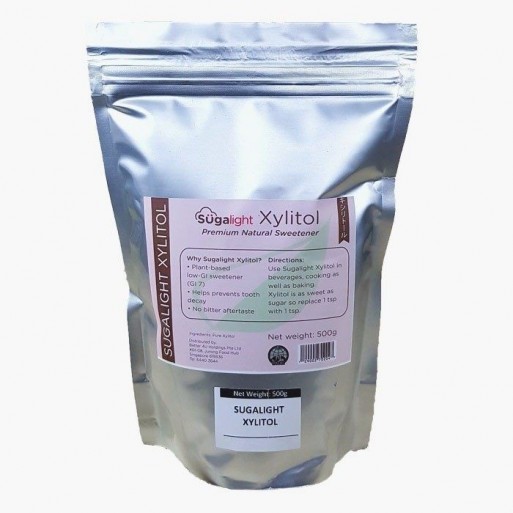



Xylitol powder is a natural sweetener derived from corn. It has a low glycemic index of 7.
Yes. Xylitol is a naturally occurring sweetener found in the fibers of various fruits and vegetables, including berries, oats, and mushrooms. In fact, our own bodies produce about 15 grams of Xylitol daily during normal metabolic processes.
Unlike artificial sweeteners like saccharin, aspartame (Equal), or sucralose (Splenda), Xylitol is an ideal choice for those seeking an all-natural, "no sugar added" alternative.
Xylitol is absorbed much more slowly than ordinary sugar, preventing the rapid blood sugar spikes that require an insulin response. This makes it a safe alternative for those managing Type 1 or Type 2 Diabetes.
| Sweetener | Glycemic Index (GI) |
|---|---|
| Glucose | 100 |
| Table Sugar | 60 |
| Xylitol | 7 |
Replacing sugar with Xylitol is one of the easiest ways to cut calories without sacrificing flavor:
By switching, you consume roughly 40% fewer calories per serving.
Vs. Maltitol: While Maltitol is often used in "sugar-free" snacks, its GI is significantly higher (Powder GI 36, Syrup GI 50). This can still cause blood sugar spikes.
Vs. Stevia: While Stevia is natural, many find it has a bitter aftertaste. Xylitol mimics the taste and texture of sugar almost perfectly.
Xylitol is heat-stable and perfect for most desserts. However, it will not cause bread to rise because yeast cannot metabolize it.
Note: Excessive consumption may cause mild gastrointestinal effects (bloating) in rare cases until the body adapts
Data sheet
Specific References